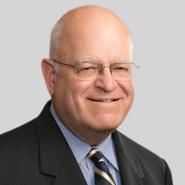Legislation and rulemaking
Voluminous and intricate statutory law is a distinguishing attribute of environmental law. Legislation is the sole source of authority for administrative regulations and other actions of agencies such as U.S. EPA and Ohio EPA. Terminology matters in legislation, and experience has proven that even a single word, or the absence of a single word, can have profound results. The impacts of well-crafted and poorly-crafted legislation tend to have far-reaching, long-lasting and change-resistant consequences, both intended and unintended. From the outset of modern environmental law, Weil Brown attorneys have participated on behalf of clients in the formulation of federal and Ohio environmental enabling legislation.
Throughout the entire history of federal and state environmental legislation since 1970, we have represented trade associations, ad hoc coalitions and individual company clients to help shape sound environmental statutes and avoid ill-advised measures. Our attorneys have drafted and advocated for or against significant parts of the Ohio Air Pollution Control Act, Ohio Water Pollution Control Act, and the Ohio Solid and Hazardous Waste Act. We have been particularly active with regard to regulatory reform and regulatory modernization as environmental programs have aged. We were the lead advocates for the regulatory reform amendments to the Ohio Air Pollution Control Act in S.B. 265, enacted in 2006. The smallest improvements in environmental legislation can produce great immediate and long term benefits. Whether it be affirmative new legislation or prevention of unwanted legislation, Weil Brown attorneys have a wealth of experience and insight to bring to bear on client goals.
As transcendently important as statutory law is, the body of administrative regulations that implement environmental programs are far more voluminous and complex than their enabling legislation. Our environmental practice since 1970 has focused heavily on the constant stream of federal and state environmental rulemakings. Advocating for or against administrative rule changes, drafting proposed language for new rules or revisions to existing rules, submitting comments on proposed rules, engaging the Ohio Common Sense Initiative Office and the Joint Committee on Agency Rule Review, and appealing federal and state rules has been our stock-in-trade.





